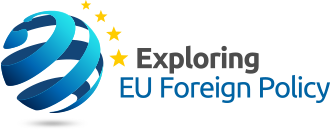Two weeks after the start of Russia’s invasion of Ukraine, the heads of state and government of the EU gathered in Versailles on 10-11 March 2022 for an informal meeting. On this occasion, EU leaders engaged in ‘bolstering their defence capabilities, reducing their energy dependencies and building a more robust economic base’. They agreed to significantly increase defence expenditures (without however specifying an amount) and to bolster defence joint-projects and procurement schemes in order to develop the necessary and sometimes missing strategic capabilities. They also set the objective to ‘phase out European dependency on Russian gas, oil and coal imports as soon as possible’ by increasing imports of LNG from other markets, improving energy efficiency and accelerating investments in renewable energy. Finally, the Versailles Declaration reiterates the need for reducing strategic dependencies on critical raw materials, semi-conductors, digital technologies, and essential medical products and foodstuff. However, EU leaders remained divided on the implementation of a new resilience scheme (on the model of the Covid-19 pandemic recovery plan NextgenerationEU) to boost new investments in renewable energy and defence projects.
The search for strategic autonomy and sovereignty has gained momentum at the EU level with the deterioration of US-China relations. The Covid-19 pandemic and now the war in Ukraine have made EU strategic autonomy even more compelling, as the Versailles Declaration emphasizes. However these objectives raise significant challenges because of numerous structural weaknesses of the EU, notably the reluctance of Member States to transfer industrial policy tools to a supranational level, but also the absence of an esprit de corps among industrialists in light of the rivalries between national business elites, the lack of centralized power over the internal market and Europe’s technological dependence on the US.
To discuss these challenges faced by the EU, Egmont, the Leuven Centre for Global Governance Studies of KU Leuven, the Institute for European Studies of UCLouvain Saint-Louis have gathered a panel of academics that have been analysing these challenges in recent research projects. The panel will assess to what extent the new EU strategies to serve the Union’s sovereignty and economic robustness goals depart from the EU’s traditional industrial policy approach, such as the Lisbon Strategy or Europe 2020. The panel will also discuss the structural differences between EU, China and US industrial and technological policy schemes as well as attempt to present various scenarios regarding the future of Europe’s strategic sovereignty.
A panel of academic experts chaired by Francois Roux
(Senior Advisor on European Affairs at Egmont)
Speakers :
Jean-Louis de Brouwer (Egmont)
Jean-Christophe Defraigne (IEE UCLouvain Saint Louis)
Patricia Nouveau (CEFIR ULg & UCLouvain)
Edoardo Traversa (UCLouvain)
Jan Wouters (GGS KULeuven)
Dimitri Zurstrassen (Sorbonne University & UCLouvain)
EU Strategic Sovereignty and Industrial Policy after Versailles
